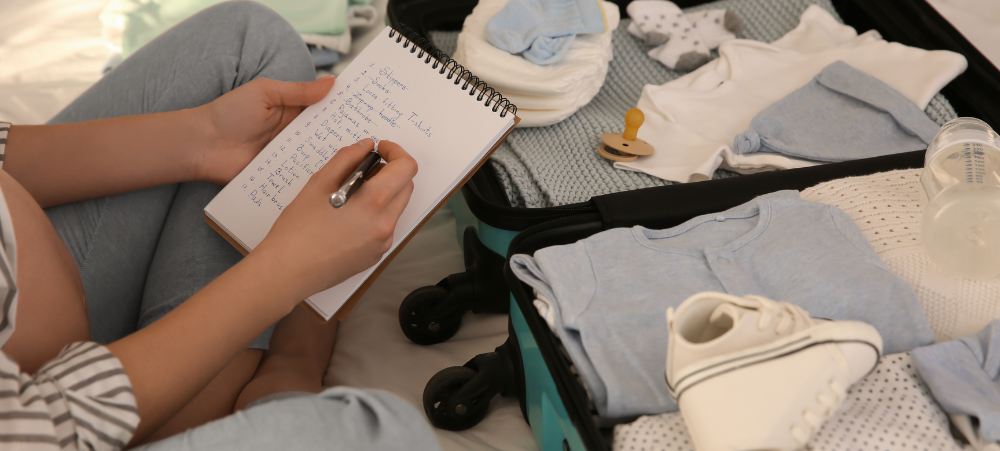Feeling your baby’s first kicks is one of the most exciting milestones during pregnancy. As your little one grows and becomes more active in the womb, those first fluttering movements evolve into stronger, more noticeable kicks. However, if you’re a first-time parent, you may wonder: what’s normal when it comes to baby kicks? How often should you feel them? And when should you be concerned? Here’s everything you need to know about understanding baby kicks and what to expect throughout your pregnancy.
What Are Baby Kicks?
Baby kicks, or foetal movements, are the physical sensations that you feel when your baby moves inside the uterus. These movements can vary in type, intensity, and frequency, depending on your baby’s development and the stage of pregnancy. Initially, foetal movements can feel like light flutters, but as the baby grows, the kicks become more distinct and powerful.
When Will You First Feel Baby Kicks?
Foetal movements typically start around 18 to 20 weeks of pregnancy for first-time mothers. However, those who have been pregnant before may feel their baby’s movements earlier—sometimes as early as 16 weeks. For some women, these early movements can feel like gentle flutters or bubbles, while others might experience them as subtle taps.
The sensation of baby kicks is often more noticeable if you’re lying down or sitting still, especially during quiet moments when you’re focused on the movement.
What Do Baby Kicks Feel Like?
Early movements may feel like:
- Flutters or bubbles: Light, almost imperceptible movements that might feel like gas bubbles.
- Tapping or nudging: Small, gentle taps or nudges from inside.
- Pulses or ripples: A soft sensation, like a gentle pulse or ripple in your belly.
As your baby grows and their muscles become stronger, the kicks become more pronounced and feel like actual “kicks,” “punches,” or “rolls.” These movements can sometimes be strong enough to startle you or cause discomfort, especially if your baby is stretching or moving around a lot.
When Should You Start Counting Baby Kicks?
Between 24 and 28 weeks, your doctor or midwife may recommend that you begin counting your baby’s kicks. This process, known as foetal movement counting, helps track the baby’s well-being and ensures they are active. Many women begin to feel consistent movements by this stage, and keeping track of them can provide valuable insights into your baby’s health.
There are various methods for counting kicks, but the most common way is to monitor how long it takes to feel ten movements. Here’s how you can do it:
- Pick a time when your baby is usually active—often after meals or in the evening.
- Sit or lie down in a comfortable position.
- Note how long it takes to feel 10 movements. You should aim to feel 10 movements within 2 hours. If it takes longer, or you notice a significant decrease in activity, contact your healthcare provider for guidance.
What’s Normal When It Comes to Baby Kicks?
Normal patterns of foetal movement can vary widely, depending on factors such as the time of day, your activity level, and the position of the baby. However, most women experience a steady increase in movement as their pregnancy progresses.
Here’s a general idea of what’s typical:
- Early pregnancy (18-20 weeks): Gentle flutters or small, irregular movements.
- Mid-pregnancy (24-28 weeks): More frequent, distinct kicks, jabs, and rolls. This is when you’ll likely begin tracking movements.
- Late pregnancy (28-40 weeks): Strong, noticeable kicks, rolls, and stretching movements. You’ll likely feel more defined movements, but your baby may also begin to have less room to move as they grow, which can result in fewer, more forceful movements.
What Could Cause Changes in Baby Kicks?
While baby kicks are generally a sign of good health, it’s important to recognise changes in the pattern of movement. Here are some common factors that may influence how often you feel baby kicks:
- Your Activity Level: When you’re active, the rocking motion may lull your baby to sleep, causing a temporary reduction in movements. On the other hand, when you rest or lie down, you may notice more kicks.
- Time of Day: Babies tend to be more active at certain times, such as after meals, when you’re relaxing, or in the evening. If you’re active during the day, your baby might be calmer and less noticeable.
- Baby’s Position: Your baby’s position in the womb can affect how you feel the kicks. If your baby is facing toward your back, you may feel fewer movements, as they are less likely to push against the front of the uterus.
- Sleep Patterns: Babies in the womb sleep for around 16-20 hours a day, so there will be periods where you feel little or no movement, especially at night.
When to Contact Your Doctor
While occasional changes in baby kicks are normal, a significant decrease in fetal movement can be a sign that something is wrong. Always trust your instincts—if you notice any of the following, contact your healthcare provider immediately:
- Sudden decrease in movement: If your baby’s movements significantly decrease or stop, especially after 28 weeks, it’s important to seek medical attention.
- Abnormal patterns: If your baby’s movements suddenly become erratic or you notice prolonged periods of no movement, this could indicate a problem.
- No movements in 24 hours: If you haven’t felt your baby move for 24 hours, contact your doctor right away.
Changes in movement are not always a sign of something serious, but it’s always better to err on the side of caution and get checked.
The Bottom Line
Baby kicks are a sign of your little one’s health and well-being, and they’re one of the most exciting experiences of pregnancy. It’s normal for these movements to vary throughout your pregnancy in terms of frequency, intensity, and timing. By understanding what’s normal and learning how to track your baby’s movements, you’ll feel more confident and reassured during this special time. Always trust your instincts, and don’t hesitate to reach out to your healthcare provider if you have any concerns about your baby’s movements.
We understand that there are many aspects that encompass a Mother, Father or Child and strive toward providing resources and services that accommodates this.
Our content is aimed to inform and educate families on issues starting from pregnancy through to the challenges of the teen-age years.
- Tips for Breastfeeding in Public: Confidence and Comfort - November 20, 2025
- Eskort launches Kiddos: South Africa’s first pork range made just for kids - November 13, 2025
- Putting the Power of Learning in Learners’ Hands During Global Education Week - November 12, 2025





